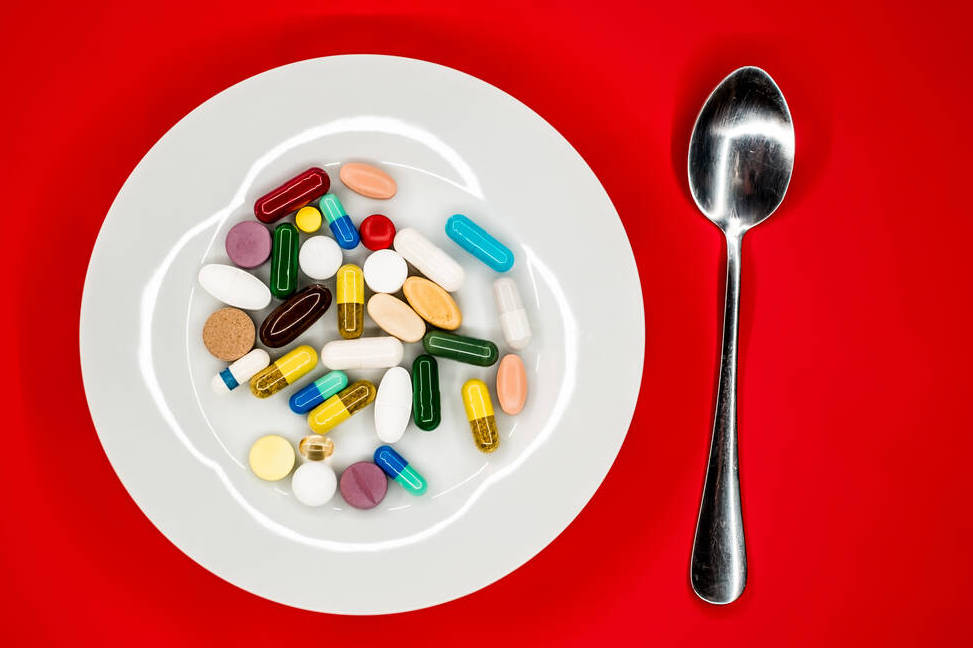59 total views
Modafinil is a powerful prescription drug used to treat conditions. While it’s effective for improving focus and wakefulness, it’s essential to understand what you should avoid mixing with modafinil to prevent potential side effects or dangerous interactions.
Understanding Modafinil
Modafinil, a prescription medication primarily used to treat sleep disorders such as narcolepsy, obstructive sleep apnea, and shift work sleep disorder, has gained popularity for its cognitive enhancing properties. Often referred to as a “smart drug,” modafinil works by altering neurotransmitter activity in the brain to promote wakefulness and focus. While its benefits are well documented, it is crucial to understand the potential risks and contraindications associated with its use.
Substances to Avoid While Taking Modafinil
Certain substances can interact negatively with modafinil, either diminishing its effectiveness or causing harmful side effects. Here are the substances you should avoid:
Alcohol
Combining modafinil with alcohol is strongly discouraged. While some individuals report heightened tolerance to alcohol while on modafinil, others experience intensified side effects such as nausea, dizziness, and impaired judgment. The interaction can also strain the liver, increasing the risk of long-term damage.
Caffeine
Although caffeine is commonly used to boost alertness, combining it with modafinil can lead to overstimulation. Symptoms may include anxiety, restlessness, rapid heartbeat, and gastrointestinal discomfort. If caffeine consumption is necessary, it is advisable to limit intake to small amounts.
Recreational Drugs
Recreational drugs, especially stimulants like amphetamines or cocaine, can have dangerous interactions with modafinil. The combined stimulant effect can significantly increase the risk of cardiovascular events such as hypertension, arrhythmias, or even heart attack.
Drug Interactions with Modafinil
Drug interactions can impact the efficacy and safety of modafinil. Below are some notable drug interactions:
Antidepressants
Certain antidepressants, such as selective serotonin reuptake inhibitors (SSRIs) and tricyclic antidepressants, may interact with modafinil. These interactions can either increase the risk of side effects like insomnia and agitation or reduce the effectiveness of one or both medications.
Anticonvulsants
Anticonvulsants like carbamazepine and phenobarbital can decrease the plasma concentration of modafinil, potentially reducing its efficacy. Conversely, modafinil may lower the levels of some anticonvulsants, leading to inadequate seizure control.
Anticoagulants
Warfarin, a commonly prescribed anticoagulant, can interact with modafinil, increasing the risk of bleeding. Patients taking both medications require close monitoring of their International Normalized Ratio (INR).
Modafinil and Contraceptives
One of the most critical interactions to note is between modafinil and hormonal contraceptives. Modafinil has been shown to reduce the effectiveness of birth control pills, patches, implants, and intrauterine devices (IUDs) by inducing liver enzymes that metabolize contraceptive hormones more quickly. Women using modafinil should consider alternative or backup contraceptive methods, such as condoms or non-hormonal IUDs, to prevent unintended pregnancies.
Health Conditions and Modafinil
Individuals with certain pre existing health conditions should exercise caution when taking modafinil. Key considerations include:
Cardiovascular Issues
Patients with a history of heart problems, including arrhythmias, hypertension, or previous heart attacks, should use modafinil under strict medical supervision. The stimulant properties of modafinil can exacerbate these conditions.
Liver and Kidney Impairment
Modafinil is metabolized by the liver and excreted through the kidneys. Those with impaired liver or kidney function may require dosage adjustments to avoid accumulation of the drug in the body, which could lead to toxicity.
Mental Health Disorders
Individuals with a history of psychiatric disorders, such as bipolar disorder or severe anxiety, should be cautious when using modafinil. The drug can sometimes trigger manic episodes, hallucinations, or heightened anxiety.
Tips for the Safe Use of Modafinil
To ensure safe and effective use of modafinil, follow these essential tips:
Adhere to Prescribed Dosages
Always take modafinil as prescribed by your healthcare provider. Do not exceed the recommended dose, as this increases the risk of side effects without providing additional benefits.
Monitor Side Effects
Be vigilant for any adverse effects, such as headaches, dizziness, gastrointestinal discomfort, or skin rashes. Severe side effects, such as chest pain or difficulty breathing, require immediate medical attention.
Stay Hydrated
Modafinil can sometimes cause dry mouth or dehydration. Drink plenty of water throughout the day to maintain optimal hydration levels.
Avoid Late Day Doses
Taking modafinil late in the day can disrupt sleep patterns. Aim to take it early in the morning to support wakefulness during daytime hours without affecting nighttime sleep.
Conclusion
Modafinil can be a valuable tool for managing sleep disorders and enhancing cognitive performance when used responsibly. However, understanding its interactions with other substances, drugs, and health conditions is critical for minimizing risks. Always consult a healthcare professional before starting or adjusting your modafinil regimen.
‼️ Disclaimer: The information provided in this article about modafinil is intended for informational purposes only and is not a substitute for professional medical consultation or recommendations. The author of the article are not responsible for any errors, omissions, or actions based on the information provided.
References:
- Product and Consumer Medicine Information Licence”. February 28, 2024
- “Modafinil Monograph for Professionals”. Drugs.com. American Society of Health-System Pharmacists. September 23, 2023
- “Modafinil Product information”. Health Canada. April 25, 2012. June 10, 2022
- Sousa A, Dinis-Oliveira RJ (2020). “Pharmacokinetic and pharmacodynamic of the cognitive enhancer modafinil: Relevant clinical and forensic aspects”.
- Hersey M, Tanda G (2024). “Modafinil, an atypical CNS stimulant?”. Pharmacological Advances in Central Nervous System Stimulants. Adv Pharmacol.
- Kim D (2012). “Practical use and risk of modafinil, a novel waking drug”. Environmental Health and Toxicology
- DeCory HH, Madan A, Parkinson A (June 2000). “In vitro inhibition and induction of human hepatic cytochrome P450 enzymes by modafinil”. Drug Metabolism and Disposition.
- “Modafinil”. MedlinePlus. US National Library of Medicine. February 15, 2016. December 7, 2023
- Slotnik DE. “Smart drugs”. The Economist. December 3, 2023
- Kakehi S, Tompkins DM (October 2021). “A Review of Pharmacologic Neurostimulant Use During Rehabilitation and Recovery After Brain Injury”. Ann Pharmacother.
